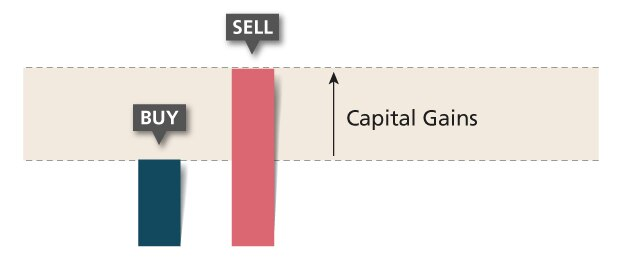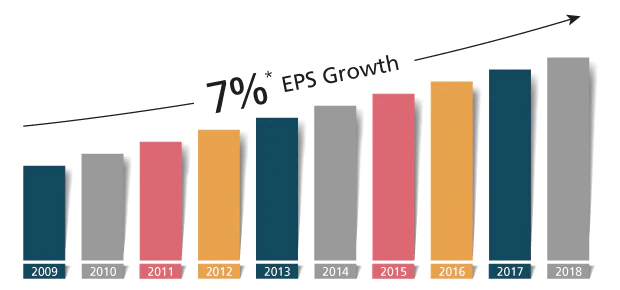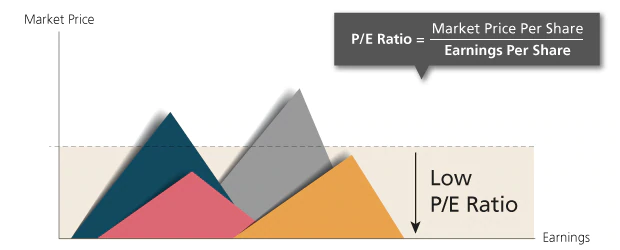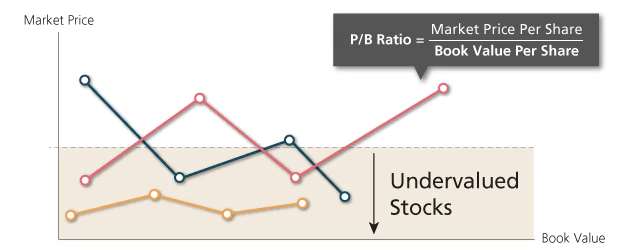The two common strategies for picking stocks.
Growth and value investing may be related, but have very different ways of analysing stocks. Here’s how the two methods work.
Growth Investing

Growth investing focuses on identifying companies that could see a rapid increase in their share prices.
This is the kind of stock growth investors look for. They’re the talent scouts of the stock market, seeking companies that could become the next accelerating stocks and these are some of their key considerations:
Capital gains over dividends

Growth investors are not interested in a stock’s dividends. They are more interested in selling the stock at a profit. Many growth stocks seek to maximise capital gains. Dividend pay-out are usually not considered.
Strong Earnings Per Share (EPS) growth

Growth investors want to see EPS constantly growing. An acceptable example for a growth stock would be EPS growth of seven per cent over a 10-year period (this may vary from investor to investor). Steady EPS growth suggests a company is growing, and will be worth more in future.
Value Investing

Value investors look for stocks that are undervalued. That means the price of the stock is lower than it should be, given the current price of what the stock is fetching (value of the company).
These are just some of the qualities that value investors look for:
Low Price-to-Earnings (P/E) ratio

The P/E ratio is the ratio of the stock’s price, relative to its Earnings Per Share (EPS). A P/E ratio of 15 would mean that a stock price is 15 times its current earnings. Most value investors will avoid stocks with a P/E ratio higher than 15*.
*This is loose rule. Whether a P/E ratio is low or high depends on the industry in question. Among retail companies, a P/E ratio of 20 might be considered high; but among medical research companies, a P/E ratio of 100 might be considered low.
Low Price-to-Book (P/B) ratio

The P/B ratio is a company’s current stock price, compared to its estimated total value. If the P/B ratio is less than 1, a company’s stock could be undervalued.
Which is Right for Me

Neither method can be proven to be better. It comes down to which style best suits your personal approach.

- You have a higher risk appetite, or want to invest in a way that impacts the world
Growth stocks offer the potential, but not the guarantee of higher returns. If you want a more aggressive portfolio to meet your aspirations, consider growth investing. - You’re risk averse and prefer to analyse data.
If you feel safer investing in companies with good fundamentals (e.g. low debt, an established business model), then you’ll be more comfortable with value investing.
In general, it’s riskier to speculate on business growth. Business growth can be impacted by many unforeseen factors, such as government intervention or failed research.
But both methods sound complicated

Picking your own stocks requires a lot of time and research. As such, Do-It-Yourself stock picks are best left to passionate investors who have the time and drive to follow the market.
For more passive investors, you can opt to invest in a fund that specialises in growth or value stocks. This will leave the work in the hands of a qualified fund manager.
Risk Disclosure and Important Notice
The information herein is for information only. DBS accepts no liability whatsoever for any direct, indirect or consequential losses or damages arising from or in connection with the use or reliance of this publication or its contents
Investment involves risks. The information provided is based on sources which DBS Bank Limited and DBS Bank (Hong Kong) Limited believe to be reliable but has not been independently verified. Any projections and opinions expressed herein are expressed solely as general market commentary and do not constitute solicitation, recommendation, investment advice, or guaranteed return. The above information does not constitute any offer or solicitation of offer to subscribe, transact or redeem any investment product. Past performances are not indicative of future performances. You should make investment decisions based on your own investment objective and experience, financial situation and particular needs. You should carefully read the product offering documentation, the account terms and conditions and the product terms and conditions for detailed product information and risk factors prior to making any investment. If you have any doubt on this material or any product offering documentation, you should seek independent professional advice.
Securities trading is an investment. The prices of stocks fluctuate, sometimes dramatically. The price of a stock may move up or down and may become valueless. It is as likely that losses will be incurred rather than profits made as a result of trading stocks. The investment decision is yours but you should not invest in any stock unless you have taken into account that the relevant stock is suitable for you having regard to your financial situation, investment experience and investment objectives.
Customers should be aware that the prices of the Callable Bull / Bear Contracts and Warrants may fall in value as rapidly as they may rise and holders may sustain a total loss of their investment. The Bank does not provide securities advisory service. Any person considering an investment should seek independent advice on the investment suitability when considered necessary.
Funds are investment products. The investment decision is yours but you should not invest in the product unless the intermediary who sells it to you has explained to you that the product is suitable for you having regard to your financial situation, investment experience and investment objectives.
The information provided above have not been reviewed by the Securities and Futures Commission of Hong Kong or any regulatory authority in Hong Kong.





